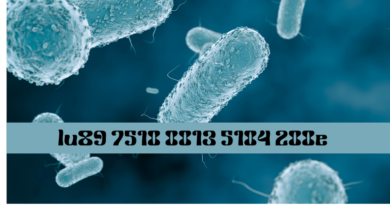Understanding Dry Mouth from Antihistamines: Causes and Solutions

Antihistamines are commonly used medications to alleviate allergy symptoms, but they often come with the side effect of dry mouth. This article explores the causes of dry mouth induced by antihistamines, how it affects oral health, strategies to manage and alleviate symptoms, and alternative treatment options.
Antihistamines and Dry Mouth
Antihistamines are medications used to treat allergy symptoms such as sneezing, itching, and watery eyes by blocking histamine receptors. While effective for managing allergies, many antihistamines have an adverse effect on saliva production, resulting in dry mouth or xerostomia.
Mechanism of Action
Antihistamines inhibit histamine receptors in the body, including those responsible for stimulating saliva production. As a result, they reduce the amount of saliva produced by salivary glands, leading to dry mouth symptoms.
Types of Antihistamines
First-Generation Antihistamines
These medications are more likely to cause dry mouth due to their ability to cross the blood-brain barrier and affect central nervous system receptors involved in saliva production.
Second-Generation Antihistamines
While generally less sedating, second-generation antihistamines can still cause dry mouth, although to a lesser extent compared to their first-generation counterparts.
Impact of Dry Mouth on Oral Health
Dry mouth, medically known as xerostomia, significantly impacts oral health by disrupting saliva production, which plays a crucial role in maintaining the health of the mouth and teeth. This section explores the various implications of dry mouth on oral health, including its causes, symptoms, effects on dental health, and strategies for management.
Oral Health Implications
Saliva’s Role in Oral Health
Saliva plays a crucial role in maintaining oral health by:
- Moistening and Cleansing: Saliva keeps the mouth moist, washes away food particles, and neutralizes acids produced by bacteria.
- Protecting Teeth and Gums: It helps prevent tooth decay and gum disease by remineralizing enamel and buffering acids.
Effects of Reduced Saliva
- Increased Risk of Tooth Decay: Without sufficient saliva, the mouth becomes more acidic, promoting bacterial growth and increasing the risk of cavities.
- Gum Irritation and Infections: Dry mouth can lead to gum irritation, inflammation (gingivitis), and infections (periodontitis) due to decreased antimicrobial properties of saliva.
Causes of Dry Mouth from Antihistamines
Dry mouth from antihistamines occurs due to their anticholinergic effects, which inhibit the action of acetylcholine in the body. Acetylcholine is a neurotransmitter responsible for stimulating saliva production. When antihistamines block this neurotransmitter, it results in reduced saliva flow, leading to the discomfort of dry mouth. This side effect can vary depending on the type of antihistamine, its dosage, and the individual’s sensitivity to the medication. Managing dry mouth from antihistamines involves staying hydrated, using saliva substitutes, and practicing good oral hygiene to alleviate symptoms and minimize oral health risks associated with decreased saliva production.
Pharmacological Mechanisms
Anticholinergic Effects
Many antihistamines have anticholinergic properties that inhibit acetylcholine, a neurotransmitter involved in stimulating saliva production.
Central Nervous System (CNS) Effects
First-generation antihistamines penetrate the CNS and interfere with neurotransmitters that regulate salivary gland function.
Individual Susceptibility
Variation in Response
Not everyone experiences dry mouth from antihistamines to the same degree. Factors such as age, dosage, duration of use, and individual sensitivity influence the likelihood and severity of dry mouth symptoms.
Interaction with Other Medications
Polypharmacy
Taking multiple medications concurrently can exacerbate dry mouth symptoms, especially if other medications also have anticholinergic effects or affect saliva production.
Managing Dry Mouth Symptoms
Lifestyle and Home Remedies
Hydration
- Increased Water Intake: Drinking plenty of water throughout the day helps keep the mouth moist and flushes away food particles.
Sugar-Free Gum or Lozenges
- Stimulating Saliva Flow: Chewing sugar-free gum or sucking on sugar-free lozenges encourages saliva production.
Moisturizing Oral Products
- Oral Moisturizers: Using oral moisturizing gels or sprays helps lubricate the mouth and relieve dryness.
Oral Hygiene Practices
Regular Brushing and Flossing
- Maintaining Oral Hygiene: Brushing teeth at least twice a day and flossing daily reduces plaque buildup and prevents dental problems exacerbated by dry mouth.
Fluoride Products
- Fluoride Mouthwash or Toothpaste: Using fluoride-containing products strengthens enamel and protects against tooth decay.
Avoiding Irritants
Alcohol and Tobacco
- Minimizing Irritants: Avoiding alcohol and tobacco products that can further dry out the mouth and exacerbate oral health issues.
Alternative Allergy Treatments
Non-Antihistamine Options
Intranasal Corticosteroids
- Anti-inflammatory Effects: Corticosteroid nasal sprays reduce nasal inflammation and allergy symptoms without affecting saliva production.
Leukotriene Modifiers
- Alternative Medications: These medications block leukotrienes, chemicals involved in allergic reactions, offering an alternative treatment option for allergies.
Allergen Avoidance and Immunotherapy
Allergen Avoidance
- Reducing Exposure: Identifying and avoiding allergens through environmental control measures can minimize allergy symptoms without relying on medication.
Immunotherapy (Allergy Shots)
- Long-Term Solution: Allergy shots gradually desensitize the immune system to allergens, reducing the need for symptomatic treatment with antihistamines.
Conclusion
Dry mouth induced by antihistamines is a common side effect that can impact oral health and overall quality of life. Understanding the causes and effects of dry mouth from antihistamines is essential for effectively managing symptoms and minimizing oral health complications. By adopting preventive measures, utilizing oral care strategies, and considering alternative allergy treatments, individuals can alleviate dry mouth symptoms while effectively managing their allergies. Consultation with healthcare providers and dentists can provide personalized guidance and ensure comprehensive care for individuals experiencing dry mouth due to antihistamine use.



